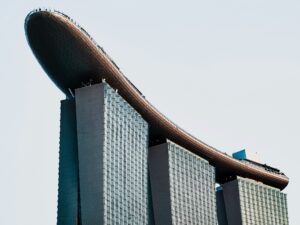
High Rental Yields: A Testament to Korea’s Real Estate Appeal
In the dynamic world of global real estate, Korea emerges as a shining star, boasting exceptional rental yields that beckon investors with the promise of lucrative returns. With rental yields outstripping those of many other major cities worldwide, Korea’s real estate market stands as a beacon of opportunity, drawing both domestic and international investors eager to tap into its robust potential. This testament to Korea’s real estate appeal not only underscores the market’s strength but also showcases its resilience amidst the ebb and flow of global economic tides.
Attractive Investment Proposition: Korea’s Competitive Advantage
A standout feature of Korea’s real estate market is its notably high rental yields in comparison to global counterparts. According to data from the Global Property Guide report, rental yields in Seoul, the nation’s capital, average around 4.25%, surpassing those of many other major cities globally. This appealing proposition entices investors, both local and foreign, seeking stable and attractive returns on their investments. With a burgeoning demand for rental properties propelled by urbanization and demographic trends, Korea’s rental yields are poised to remain competitive, providing investors with a reliable income stream and promising long-term growth potential.
Diverse Investment Opportunities: Expanding Horizons in Korea’s Real Estate Sector
Korea’s real estate market offers a diverse spectrum of investment opportunities spanning residential, commercial, retail, and industrial sectors. From upscale condominiums nestled in prime urban locales to high-yield rental properties catering to various market segments, the market presents options tailored to meet the discerning needs of astute investors. Backed by a resilient economy, stable political climate, and strategic location in East Asia, Korea’s real estate sector presents a compelling investment proposition for those looking to diversify their portfolios and maximize returns.
Residential Sector: The residential sector in Korea offers a myriad of opportunities for investors, ranging from luxury high-rise apartments in Seoul’s affluent neighborhoods to affordable housing options in emerging suburban areas. With a growing urban population and increasing demand for housing, particularly among young professionals and expatriates, the residential market remains buoyant and ripe for investment. Moreover, government initiatives aimed at promoting homeownership and improving housing affordability further bolster the attractiveness of the residential sector for investors seeking long-term growth potential.
Commercial Sector: The commercial real estate market in Korea is characterized by a robust demand for office space, driven by the presence of multinational corporations, financial institutions, and technology firms. Prime office buildings in central business districts such as Gangnam and Yeouido command premium rental rates, offering investors stable income streams and capital appreciation potential. Additionally, the retail sector presents opportunities in shopping malls, retail complexes, and mixed-use developments, catering to the diverse needs of consumers in urban centers and suburban areas alike.
Industrial Sector: Korea’s industrial real estate sector is marked by strong demand for logistics facilities, warehouses, and manufacturing plants, driven by the nation’s export-oriented economy and robust manufacturing base. With the rise of e-commerce and global supply chain networks, there is growing demand for modern logistics infrastructure to support the efficient movement of goods domestically and internationally. Investors can capitalize on this trend by investing in industrial properties located in strategic logistics hubs and industrial zones across the country.
Hospitality Sector: The hospitality sector in Korea offers investors opportunities in hotels, resorts, serviced apartments, and other accommodation facilities catering to domestic and international tourists. With the government’s focus on promoting tourism and enhancing the country’s hospitality infrastructure, there is growing demand for high-quality accommodation options in key tourist destinations such as Seoul, Busan, Jeju Island, and the Korean Alps. Investors can capitalize on this trend by investing in hospitality assets with strong brand recognition, strategic locations, and attractive amenities to attract both leisure and business travelers.
Government Support and Market Dynamics: Fostering Growth in Korea’s Real Estate Sector
Integral to Korea’s real estate prowess are proactive government policies aimed at catalyzing market growth and instilling investor confidence. Through initiatives such as tax incentives, regulatory reforms, and urban revitalization projects, the government creates an environment conducive to real estate investment and development. These strategic interventions not only bolster market sentiment but also attract both domestic and international investors, fueling demand and propelling the market towards sustained growth and prosperity.
In light of Korea’s high rental yields and investor-friendly market dynamics, the outlook for the nation’s real estate sector remains exceptionally positive. With a competitive edge in rental returns, diverse investment opportunities, and supportive government policies, Korea stands poised to continue attracting interest from investors seeking stable and attractive returns. As the market evolves and adapts to changing economic landscapes, Korea’s real estate sector remains a beacon of opportunity in the global investment arena, offering investors a pathway to enduring prosperity and success.



